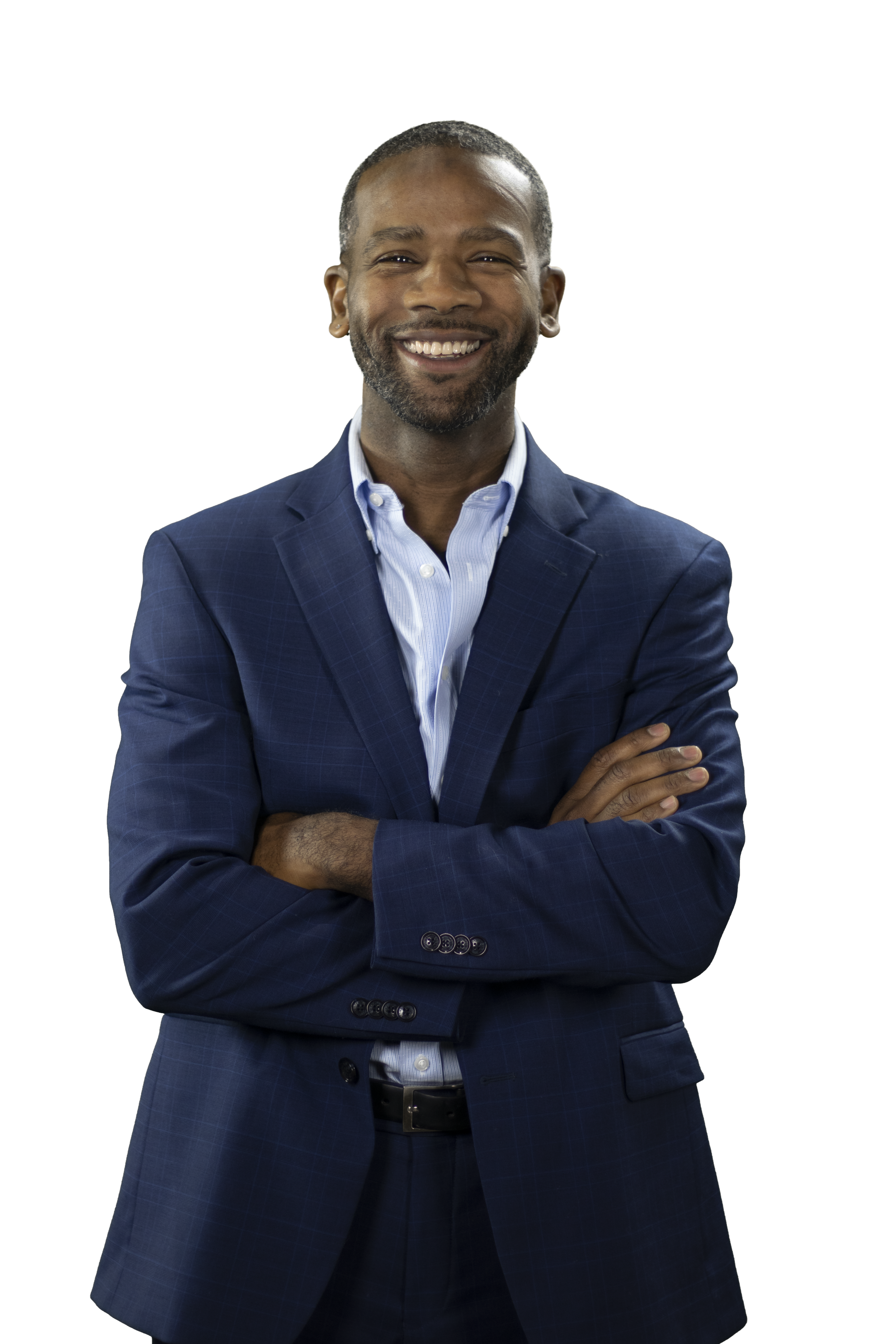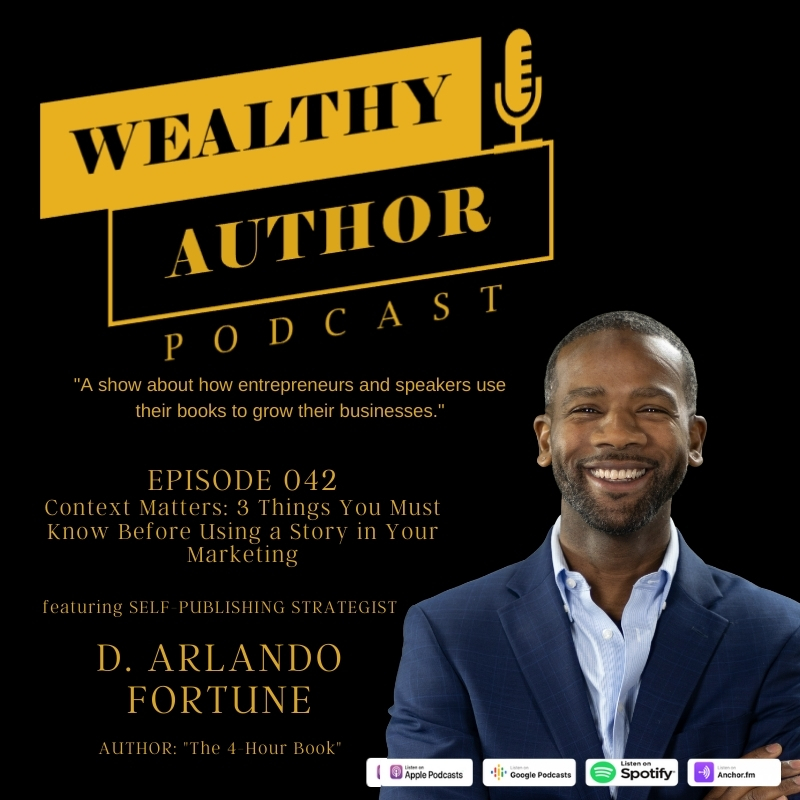CLICK THE 3 DOTS TO SUBSCRIBE 

By D Arlando Fortune
BARS from this episode:
“There are few problems a great story cannot solve.”
Don’t get carried away. Every story doesn’t need to be long diatribe. But when you’re trying to solve a problem, the story behind the problem will often lead to the solution you seek. The trick is seeing both stories – of the problem and of the solution – in whatever form they may present – or hide – themselves and delivering a story that suits the situation.
“Great stories take many forms.”
Researchers use data points.
Entrepreneurs used dreams and visions.
Therapists use memories and hope.
Parents use fairy tales and folklore.
It’s all problem-solving.
“Cater your story to your audience.” It’s kinda like a luxury SUV. It can go off-road (for a casual setting). It can be classy (for those professional settings). And, it can host a family (for the PG version). Most importantly, it should always be polished. Stop making up stories off on the spot when you know you’ve told them over and over. Take the time to make them meaningful and impactful.
Here’s how my hero’s journey sounds in the three settings:
Casual: I messed up my life a lot after college. I started partying with coworkers. I was a facilitator of party favors. And, before I knew it, I was doing things that I never thought I would do – stealing, lying, pimping women, and short cons. Most days, I woke up saying I wasn’t going to get high. But by the time I got outta bed, I already had a plan for my first “wake up”, which was what we called the first hit of the day. Once you get your wake up, you were off and running for the day. In 2013, I was on a good run. I had a backseat full of liquor. It was enough to last me the rest of the day. Then, I got a call from a woman I was trying to hook up with…
Classy: I remember sitting on this cold, hard bench. I was hunched over with my face in my hands. I couldn’t figure out why I’d done it again. I’d told myself that I’d stop. But here I was sitting in jail facing 12 years of prison for crimes I’d committed trying to fuel my addiction. It hadn’t always been that way. I’d graduated from a Division I college with honors and an opportunity to play pro baseball in Canada. I chose to get a job working as a government accountant. That’s an oxymoron. Those two words should not be next to each other. While working for the government, I learned about real estate and wealth-building. I took that knowledge and bought some properties…
PG: Don’t do like I did. I had all of this potential to do something with my life. I had a chance to play pro baseball in Canada and turned it down to be an accountant for the government. I got so bored at that job that I started reading books on how to get rich. When I started making money from the real estate deals I was doing, I started partying even harder. I was doing a lot of stupid stuff and getting caught for some of it. One year, I got caught for the same crime three times! I should have been sent straight to prison, but God had a different plan. He always had one for me. I wasn’t listening because I was being hard-headed. I wanted to do what I wanted to do…
It’s the same story. The contexts changed the words I used because “word choice is meta-storytelling”. Choose them with care and watch the effect they have on your audience. There are three sides to understanding the context of your story: method, type, and reason. Let’s break them down.
“Be an avid collector of your experiences. There are few problems a great story cannot solve.” – D. Arlando Fortune
“From personal to professional and all between, stories bridge the gap.” Context is a key component to building that bridge.
- Method – “Blogs and social media made it clear that how you tell your story matters.”
- How will you deliver your story – video, text, or audio.
- Use the modality that you’re most comfortable working in.
- Type – “Telling the story right is just as important as telling the right story.”
- Classy, casual, family, reviews, comedic, sales – what is the setting for the delivery of your story?
- Be able to deliver at least a short and a long version.
- Reason – “Stories instruct where facts fail.”
- Why are you telling the story – performance, persuasion, or perspective?
- Focus on the outcome you’re after.
“Stories are our primary tools of learning & teaching, the re-positioning of our lore and legends. They bring order into our confusing world. Think about how many times a day you use stories to pass along data, insights, memories, or common-sense advice.” – Edward Miller
The point in this quote was made even clearer two weeks ago. I was in Arizona to work on my dissertation. Our professors told us stories about how previous doctoral learners failed and succeeded. They walked us through the 18 months of work we’d have to complete after we’d finished our coursework just to get our PhD. They called it the “Shock and Awe” exercise.
On the final day of the residency, they took us on a visual journey of graduation. They talked us through the emotions, conversations, and excitement of the day while clicking through pictures from recent graduates carefully turned into a PowerPoint presentation. Ya see, stories matter.
“Be an avid collector of your experiences.” To do this, story databases are your secret weapon. Keep your experiences and the stories you hear and read about in a journal, email account, or software. (I recommend Evernote.) And, when it’s time to share your story, use a structured storytelling system until you’ve created your own style. Actually, I built a system around the word. You’ve just gone through it. It’s called the STORY framework.
Make a STATEMENT.
TELL a story.
Cover the OPPORTUNITY, OBJECTIONS, & OBSTACLES.
REVIEW what you covered and offer a testimonial/case study REVIEWS.
Give an easy YES.
That said… This week, add five stories to your database. They can be new stories or old stories. Your stories or borrowed stories. Real events or made up.
Add your top five stories to your database and massage the wording for a new context. If you have a casual version, modify it for a professional setting. If you have a story for a selling situation, practice telling it as a family story.
How would you change your story from a persuasive tone to a performance? You may never use the story in the other setting. But you’ll learn a new dynamic to your story that will improve your delivery in the way you use it.
“You’ve just listened to episode number 042 of the Wealthy Author Podcast with your host D Arlando Fortune. I wanna give thanks to our Creator.
Do you have questions or comments? Email them to fortune@thoughtfortunepress.com
Don’t forget to reserve your seat for the free training at ThoughtFortunePress.com/miniclass where I teach you how to avoid the 9 mistakes beginning authors make and how to write a money-making branded book without being a great writer or wasting your time waiting for a publishing deal. Save your virtual seat at ThoughtFortunePress.com/miniclass
And, if you like the show, do us a favor. Share, like, and join. Take a screenshot and share the episode with the hashtag #wealthyauthorpodcast. Show us how much you like us by giving us five stars and a review on iTunes. Finally, join us every week by subscribing to the podcast so that you don’t miss an episode.


